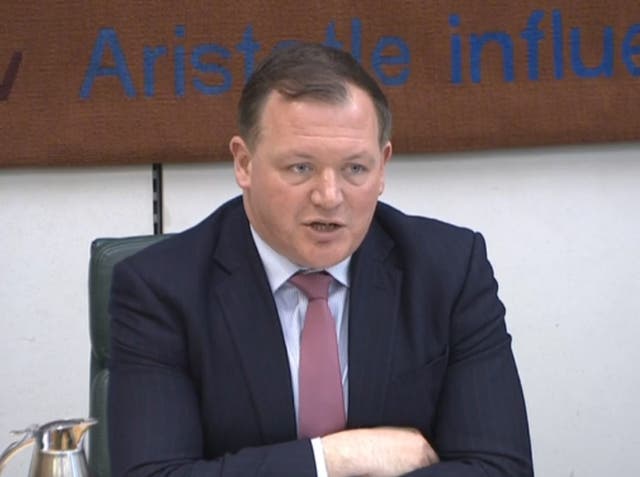
Nick Ferrari 7am - 10am
14 December 2021, 00:04

A parliamentary joint committee has published its recommendations for the draft Bill.
MPs and peers have called for “major changes” to the draft Online Safety Bill to “call time on the Wild West online”.
The Joint Committee on the Draft Online Safety Bill said more offences needed to be covered, including paid-for scam and fraudulent advertising, cyberflashing, content promoting self-harm and the deliberate sending of flashing images to people with photosensitive epilepsy.
The committee’s report said the Bill needed to be clearer about what is specifically illegal online and proposed that pornography sites should have a legal duty to keep children off them regardless of whether they host user-to-user content.
It also said that Ofcom, which is set to become the regulator for the sector, should be given more powers to investigate, audit and fine tech companies, and it should draw up mandatory codes of practice for internet service providers, with named senior managers at firms designated the “safety controller” and made liable if a service is found to fail to protect users.
The Government has two months to respond to the committee’s recommendations, with the Bill due to be put to Parliament next year.
Damian Collins, chairman of the joint committee, said the Bill would bring an end to the “era of self-regulation for big tech”.
“The committee were unanimous in their conclusion that we need to call time on the Wild West online,” he said.
“What’s illegal offline should be regulated online. For too long, big tech has gotten away with being the land of the lawless.
“A lack of regulation online has left too many people vulnerable to abuse, fraud, violence and in some cases even loss of life.
“The committee has set out recommendations to bring more offences clearly within the scope of the Online Safety Bill, give Ofcom the power in law to set minimum safety standards for the services they will regulate, and to take enforcement action against companies if they don’t comply.
“The era of self-regulation for big tech has come to an end. The companies are clearly responsible for services they have designed and profit from, and need to be held to account for the decisions they make.”

The report also recommended an automatic exemption for recognised news publishers as part of protections for freedom of expression and said journalism and “public interest speech” should be acknowledged as crucial to democracy.
The report’s publication follows a lengthy inquiry into online safety, which heard from victims of online harms such as Ian Russell – whose daughter Molly killed herself after viewing harmful content online – as well as Government ministers, Ofcom and social media and tech giants.
Responding to the committee, Culture Secretary Nadine Dorries said the Bill will “require tech firms and social media companies to take long-overdue responsibility to protect their users” and would “hold big tech to account if they fail to act”.
“I’d like to thank the Committee for its work.
“The Government will consider its recommendations carefully and incorporate them where we feel the Bill can be strengthened further to make Britain the safest place to go online, while protecting free speech,” she said.
The report has already received backing from others in Parliament, with Mel Stride, chairman of the Treasury Committee, welcoming the recommendation to add fraudulent advertising to the scope of the Bill.
“The Treasury Committee has repeatedly called for the Government to include fraudulent advertisements within the scope of the Online Safety Bill,” he said.
“While it’s reassuring that some online platforms are taking action to remove scam adverts from their sites, it’s clear that not enough is currently being done to combat online fraud.
“We support the joint committee’s recommendations in this area and call on the Government to act and stop these criminals in their tracks. Without a decisive response from the Government and the tech giants, many more individuals will sadly fall victim to these scammers.”
Consumer champion Martin Lewis said he was “delighted” with the committee’s decision to include scam adverts within its recommendations.
“Scams don’t just steal people’s money, they can take their self-respect too.
“As well as damaging the mental health of victims, it disproportionately hurts those with existing mental health problems who are three times more likely to be affected.
“Scams and fraud aren’t just a financial issue, they’re a core wellbeing issue,” he said.
“We are desperate for the Government to listen to the joint committee on this and change its plans.”